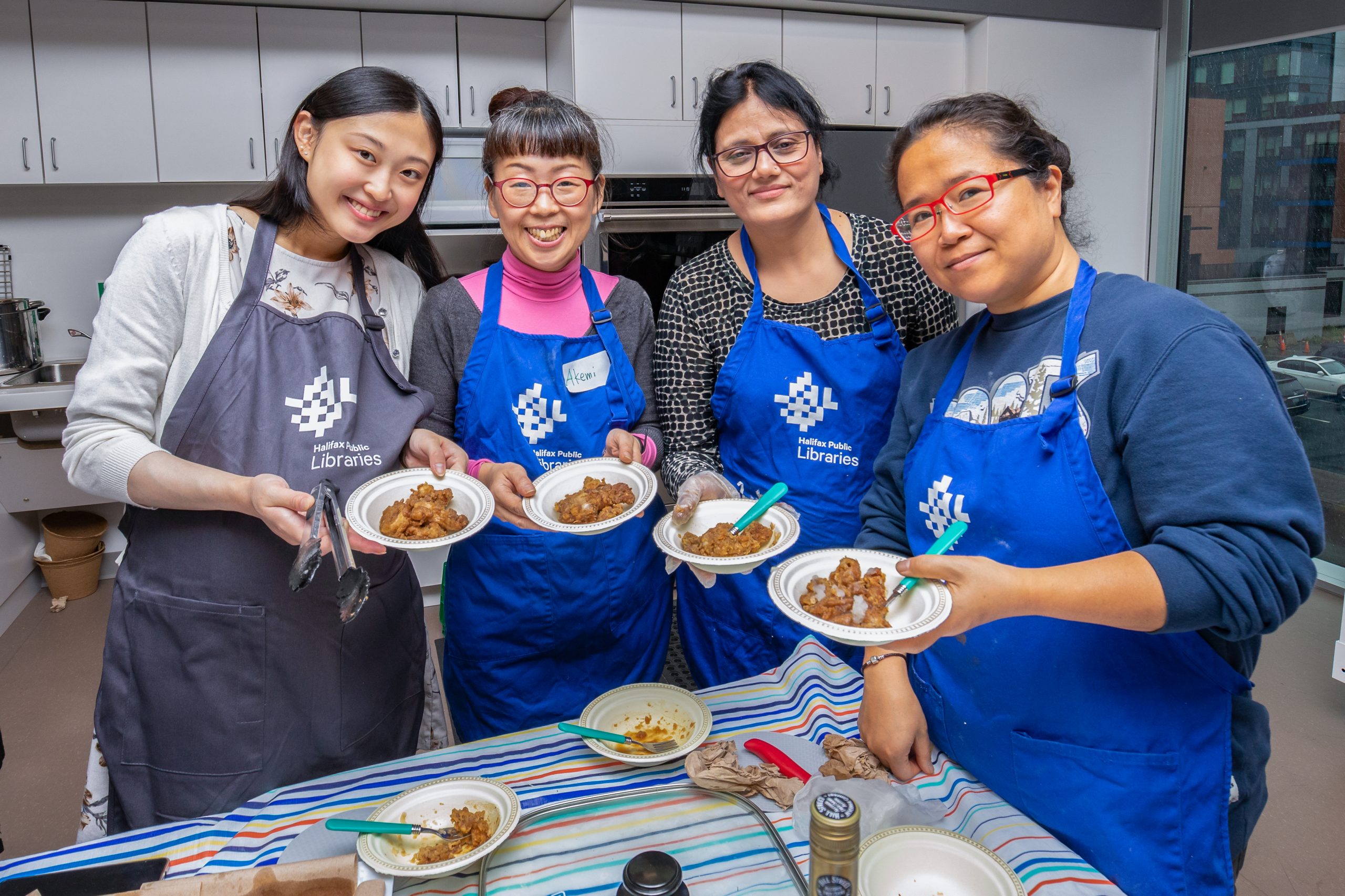Written by Niousha, Dietetic Intern with Halifax Public Libraries
Did you know that March is Nutrition Month? This year, Canadian Dietitians, led by Dietitians of Canada, opens a new window, are talking about how healthy eating looks different for everyone.
What's a Dietitian?
A Registered Dietitian is a regulated health professional who is passionate about food and the science behind it. They have a bachelor’s degree in Applied Human Nutrition from an accredited university program. They also complete practical training and have to pass a national licensing exam. Like all regulated health professionals, Dietitians must stay on top of new research, skills, and techniques to improve their skills and knowledge every year.
Some Dietitians work in private practice clinics, while others choose to work in hospitals, long-term care, or food service facilities. They help people understand the connection between the food you eat and your health, and will work with you to embrace, understand, and enjoy nutrition. They may also team up with other health professionals such as doctors or nurses to support you through the many phases of your life—from pregnancy to eating well as you age. Counselling sessions with a Dietitian can also help you prevent and treat some health conditions such as diabetes or heart disease.
What's the difference between a Dietitian and a Nutritionist?
Some Dietitians have a job title that also includes Nutritionist, such as a Community Nutritionist. To be sure you are accessing the most qualified nutrition professional, look for the initials RD or PDt (DtP in French) after the health professional's name, or simply ask—are you a registered Dietitian? Dietitian is a protected job title across Canada, just like a Physician, Nurse, or Pharmacist. The job title Nutritionist is also a protected title in Alberta, Quebec and Nova Scotia.
Food literacy and the Library
Emily Glover, the Library's Food Literacy Specialist, opens a new window, works with local Dietitians and community health teams to provide healthy cooking workshops and classes for all—both before COVID-19 and beyond. Explore our Food and Cooking page, opens a new window for cooking how-to videos, cookbooks, recipes and more.
You can also visit our "What's On" event page, opens a new window regularly for upcoming food and nutrition workshops led by local professionals.
Healthy eating for everyone
Healthy eating can be adaptable and reflect various lifestyles, conditions, environments, cultures and food traditions. That means that there is no one-size-fits-all approach when it comes to healthy eating. Healthy eating doesn’t necessarily mean eating raw, plant-based, or vegan. You don't always have to eat tons of fresh produce and green salads, or meal prep your food in glass containers to be consumed throughout the week. While all these examples may be considered healthy eating to some, the reality is that nutrition highly individual and unique to each person.
Healthy eating is different for everyone and depends on one's culture, dietary restrictions, religious beliefs, food preferences, cooking skills, nutritional needs, environment, and so many other factors. Inevitably, healthy eating means eating a variety of foods that give you the nutrients you need to maintain your health, feel good, and have lots of energy. It is important to find your own healthy, and forget about all the trendy diets on the internet. Learning how to adjust recipes to meet your needs can help you eat in a way that works for you. Because at the end of the day, what you eat on regular a basis matters for your health.
Culture and food traditions
Your preferences and eating habits can be shaped by many things—including your culture and food traditions. In many places around the world, the food you eat and the way you eat them are important to cultural celebrations, and help bring people together.
Ideas surrounding what is considered to be healthy vary worldwide. In fact, including cultural food traditions as part of your healthy diet can help you explore foods that you enjoy, improve your cooking skills, and expand your knowledge too. Also, learning about cultures and food traditions can create a sense of community, and foster connections by sharing them with others.
More resources
- Read how Halifax Public Libraries adds emphasis to food learning, here, opens a new window.
- Reach out to the Library's Food Literary Specialist Emily, here, opens a new window.
- To try new delicious recipes, check out the Dietitians of Canada Free Recipe e-Book, here, opens a new window.
- Find a Dietitian near you, here., opens a new window
- UnlockFood.ca, opens a new window also has easy-to-read, science-based information on nutrition and more to help you get started.
Your Library is good for your health. Whether you're attending an online or in-person class, borrowing active living gear, or exploring wellness books, we're proud to be a place you can rely on to take care of your mind and body. Explore more health and wellness events, resources, and reads, here, opens a new window.
You can also stop by your local Library branch during March to explore our Nutrition Month displays, featuring books written by Dietitians!







Add a comment to: Nutrition Month: Start Your Wellness Journey